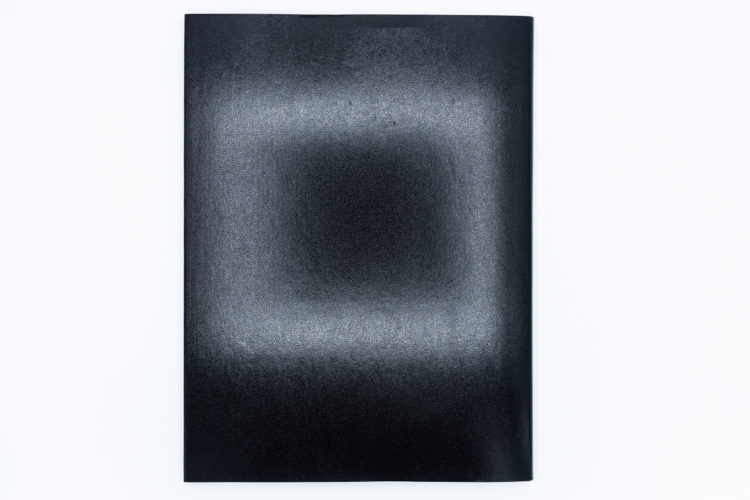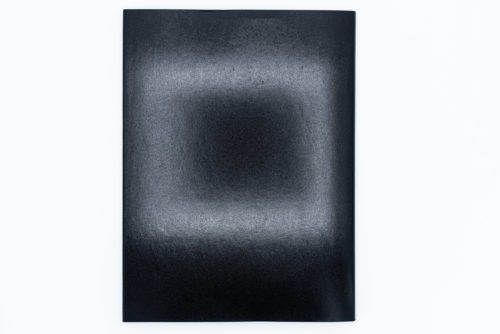





Jorge SatorreVeste noire, sweat-shirt gris
Black Jacket, Grey Sweatshirt is a series of 22 drawings made by the artist based on observations he wrote during a day in October 2019, in the Chapultepec Woods in Mexico City, a place of frequent amorous encounters. Jorge Satorre made these drawings over a period of four months based solely on his notes. The resulting 22 drawings cover seven and a half hours of that day, each corresponding to a 20-minute time span. A couple appeared at about 1.45pm and left when it started to rain.
The series was inspired, among other things, by the play El Acero de Madrid (The Steel of Madrid) written by Lope de Vega in 1608. This comedy recounts a practice that was first popular among women of the Spanish high society in the seventeenth century and later became popular, which consisted of ingesting small pieces of ceramic vases, called búcaros, for the supposedly ‘beautifying’, lightening, slimming and even contraceptive properties of their decorative surfaces. These búcaros could come from Badajoz and Cáceres in Spain or Estremoz in Portugal, but the most prized were those from the province of Santiago de Tonalá in New Spain, now in the state of Jalisco in Mexico. To counter the harmful effects of bucarophagy, it was recommended to “take and walk the steel” (tomar y pasear el acero), i.e. to go into the woods or the countryside to look for and drink iron-rich spring water. Spanish society in the Golden Age quickly eroticized this custom, giving a sexual connotation to the expression, implying that these curative walks were the scene of furtive love affairs.
Jorge Satorre links this story to another practice reported by Iván Gallegos, a blacksmith with whom he worked in Cuenca, Ecuador, who tells us that when a tool is very worn, its blunt part is cut away so that it can be sharpened. The resulting fragments are recovered, heated to white and cooled in a glass of water, which infuses the metal with its accumulated history and working strength – an infusion that can be used as a remedy for all forms of deficiency and loss.
Eating the decorative surface of functional objects produced in colonised territories to lighten the skin, as a symptom of classism and racism, or to prevent pregnancy; drinking the energy accumulated by labouring bodies in forge workshops; engaging in non-reproductive sexuality by flirting in the woods, all appear as practices of resistance or adaptation to relations of social domination based on processes of appropriation, accumulation or extraction.





- Elfi Turpin et Thomas Patier
- Crac Alsace
- Languages English French Spanish
- Release2021
- Pages48
- Format31.2 x 22.5 cm
- ISBN9782911660214






